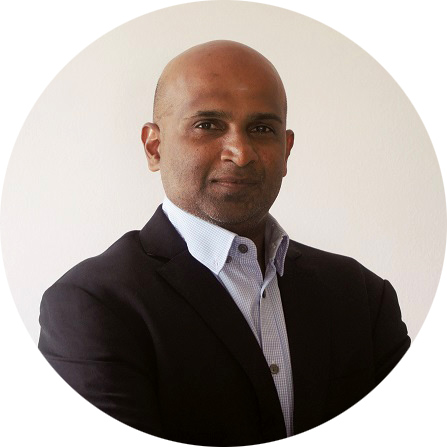You are here
Excellence Begins With Right Mindset

THE human mind plays a vital part in the existence of humanity.
Spiritualists, psychologists and institutional theorists have been studying the human mind for a very long time.
A single method of defining what the mind is (or is not) and how to tame or control it, in my view, does not exist.
The mind can be defined as a bundle of thoughts and it is often linked to energy patterns.
Personal development books tend to relate one’s mindset as being either positive or negative – with the former leading to successful personal and organisational outcomes.
In 2015, after several years of sound research with various groups including kindergarten children, Carol Dweck wrote a seminal paper about the growth mindset.
She suggested that people with a growth mindset (relative to a fixed mindset) can perform better and achieve higher outcomes in each activity.
Specifically, she stated that: “In a growth mindset, people believe that their most basic abilities can be developed through dedication and hard work – brains and talent are just the starting point.
“This view creates a love of learning and a resilience that is essential for great accomplishment.”
The six dimensions where having a growth mindset can lead to better academic outcomes for students are:
Learning from others
Students with a growth mindset believe that their potential can be harnessed via learning from others, having a good strategy and being diligent.
In contrast, individuals with a fixed mindset believe that talent is predetermined and cannot be developed easily.
They also see others as threats and view education as being in a rat race.
Students who cultivate a growth mindset can become more innovative and achieve greater results.
Seeing failure
Individuals with a growth mindset see failure as an opportunity to succeed.
They have a “never give up” attitude and use failure as a powerful learning mechanism to improve themselves, such as refining their ideas or prototypes based on feedback and criticism received.
People with a fixed mindset relate failure to a self-fulfilling prophecy that they have limited abilities and talent.
These people see failure as a limitation. Naturally, they tend to give up easily on projects or ideas. A growth mindset cultivates a positive outlook despite failure and obstacles.
Failure can serve as a powerful antidote to success and a valuable lesson that we can learn from.
Approach to learning
Individuals with a growth mindset focus on what and how they can learn.
They also use every possible opportunity to learn from others, either formally, informally or vicariously.
Individuals with a fixed mindset focus on why they cannot learn and look for the slightest excuse to circumvent learning possibilities.
Again, students who set themselves apart seem to have mastered the art of a collaborative and open learning culture.
Information and knowledge are shared across teams and projects seamlessly.
Receiving feedback
Individuals with a fixed mindset do not take feedback constructively – rather, they often take feedback as a personal attack or perceive the feedback mechanism as a threat.
They seldom use feedback as an opportunity to grow.
People with a growth mindset, in contrast, welcome feedback and use it to further improve on their projects or ideas.
These individuals view feedback as a constructive process.
They also see the person giving feedback as an ally or partner who offers co-creative possibilities.
Celebrating success
Those with a fixed mindset often see successful people as threats and reinforce their self-limiting abilities.
In extreme cases, the success of others is viewed with an envious lens.
These individuals also often use statements such as “she was lucky”, “the professor likes him”, “she is smart, to begin with”, “he comes from a good background” and “I would be the same if I were in her shoes” to justify the success of others.
People with a growth mindset, on the contrary, celebrate the success of others.
They have a deep sense of appreciation for why others are successful and seek opportunities to emulate such success.
Universities that celebrate success often have formal and informal methods of using success to inspire others.
Knowledge sharing sessions, coaching, and mentoring are examples that can be useful.
Coping with challenges
Students with a fixed mindset do not like to be challenged.
They see challenges as growth-limiting obstacles and often relate any challenges given as an attempt to lead them to failure.
With a growth mindset, individuals and teams use challenges as opportunities to grow.
A university culture that encourages students to have a growth mindset will keep coming up with challenges for individuals and teams to work on.
Forward-thinking schools and leaders get students to tackle challenges aimed at solving vital issues for humanity, such as addressing the environment, food sustainability, and new technology that can help us live and function better as a global community.
On a personal note, I lost my mother a month before I sat for the Sijil Tinggi Persekolahan Malaysia (STPM) and I lost my father while I was three years into my bachelor’s programme.
These and other setbacks did not deter me from having a growth mindset. I learnt quickly that challenges are part and parcel of a student’s journey.
My resilience paid off as I became Malaysia’s Rhodes scholar in 1996 and a Fulbright scholar in 2002.
With a growth mindset, anything is possible, including academic excellence.
Prof Dr Murali Raman |
Prof Dr Murali Raman is the postgraduate and continuous education director at Asia Pacific University of Technology and Innovation (APU), focusing on executive training and consultancy. His niche training areas include design thinking, coloured brain communication and emotional drivers, digital economy, crafting digital strategies, and mindset change. The views expressed here are the writer’s own.
To find out this column writing in the Star Educate, please click https://www.thestar.com.my/news/education/2021/07/25/excellence-begins-with-right-mindset#openShareModal



